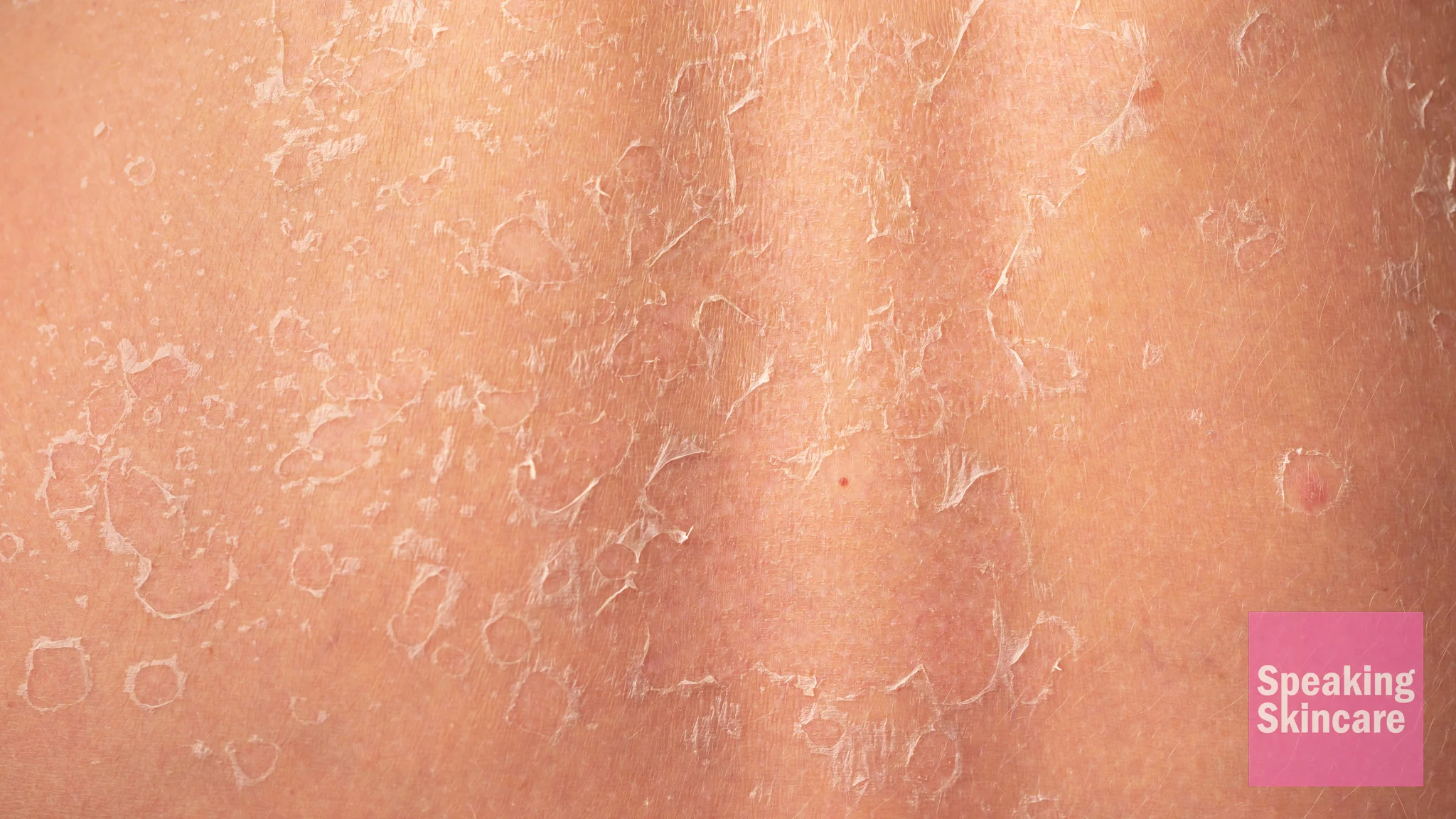There are so many conditions, reactions, and types of terminology when it comes to skincare, that it can sometimes get overwhelming. Often, there are multiple ways of referring to the same or similar things, and this just creates an unnecessary fog of confusion for consumers.
Today, we’ll be looking at something called ashy skin. Never heard of it? You won’t be the only one. But don’t worry, we’re here to help.
Here’s what ashy skin means and how to treat it.
What is ashy skin?
Ashy skin is basically just another way of referring to dry skin. However, the specific term “ashy skin” is usually used when talking about the visibility of dry skin on darker skin tones. Of course, people with all types of skin tones can experience dry skin, and there’s no part of the body that is off-limits.
In regards to ashy skin on darker skin tones, the dryness has a particular appearance. It can look grey or “ashy”, has thin and cracked lines, and can feel rough and bumpy to the touch. In more severe cases, the dry skin can crack, flake, or even bleed.
The causes of ashy skin
Ashy/dry skin is incredibly common. The main root cause is a lack of moisture within the skin, leading to dehydration, which then creates dryness.
But what are some other factors that lead to ashy skin? Here’s a handy list.
Genetics
Genetics can also play a big role. If you come from a family where dry skin is common, the likelihood is you have a good chance of developing it too. In this scenario, there’s not a lot you can do other than effectively manage dryness with the right products and skincare routine.
Environmental factors
Ah yes, that pesky environment. Being exposed to pollution, dirt, grime, and other debris in the air on a daily basis can create ashy conditions. Sun rays can also dehydrate the skin as well as cause surface damage. Cold or harsh weather also contributes as the air lacks vital humidity.
Reactions to products
Certain skincare or washing products can leave dryness in their wake. Certain soaps, lotions, and shampoos can contain detrimental ingredients that cause an ashy response after use. You should look through your product collection and make note of the items that you have noticed doing this.
Skin conditions
Skin conditions such as acne or eczema amplify and produce uncomfortable levels of dry and ashy skin. While these conditions can be treated with products, we would always recommend speaking to a doctor or qualified dermatologist to get the proper advice needed.
The best ways to treat ashy skin
Alright, we know the causes, but how do we fix it? There are several methods we have identified that can really help treat ashy skin. Here are our recommendations.
Moisturize daily
This seems obvious, but sometimes the best things in life are. One of the most effective treatments for ashy and dry skin is using a moisturizer regularly, preferably daily. We suggest richer products like creams and oils to get the best possible results. This will help your skin retain more water and stay hydrated for longer.
Drink water
Speaking of hydration, it’s super important you stay hydrated throughout the day. Drinking enough water is something shockingly few people do, but it is essential to good health and skin. It is generally agreed that drinking 8 glasses of water a day for an average adult is the way to go, though this may vary depending on someone’s size and body type. Drink up!
Try gentler products
A contributing factor towards ashy skin is harsh skincare products that contain potent ingredients. Things like exfoliators, while brilliant for clearing away unwanted muck, can be too strong for some people’s skin, leading to irritation and dryness. Try using gentler items such as cleansers and more water-based products to combat this.
Talk to a doctor
If the above doesn’t work to your liking, you should consult the advice of a doctor or qualified dermatologist. It’s rare, but sometimes ashy and dry skin can be caused by an underlying medical condition that even you may not be aware of. So if you’re particularly concerned, it’s better to be safe than sorry.
How to prevent ashy skin
Half of the battle against ashy skin is won by taking preventative measures to stop it from appearing in the first place. Again, the solutions seem simple but they will produce long-lasting results if done consistently.
As mentioned above, moisturizing the skin regularly is truly an underrated act. Moisturizer will help the skin retain water while also protecting the outer layer against the challenges of the day. Drinking water will add to this. Also, take steps to protect the skin from environmental factors. For example, wear sunscreen if you live in a sunny climate.
Conclusion
Ashy skin is simply another term for dry skin. Dry skin can occur due to a number of different reasons, but thankfully can be easily managed and treated.
